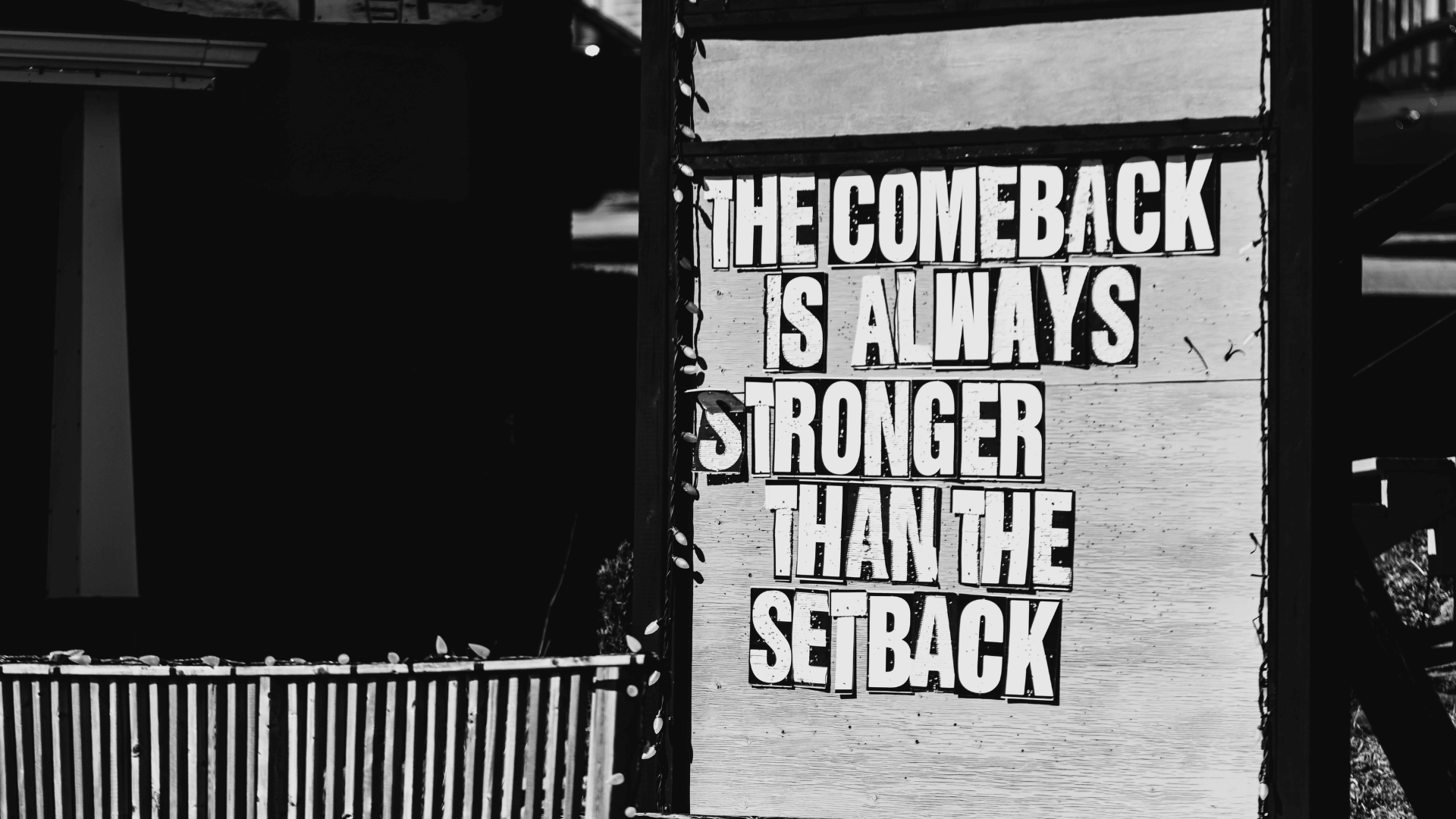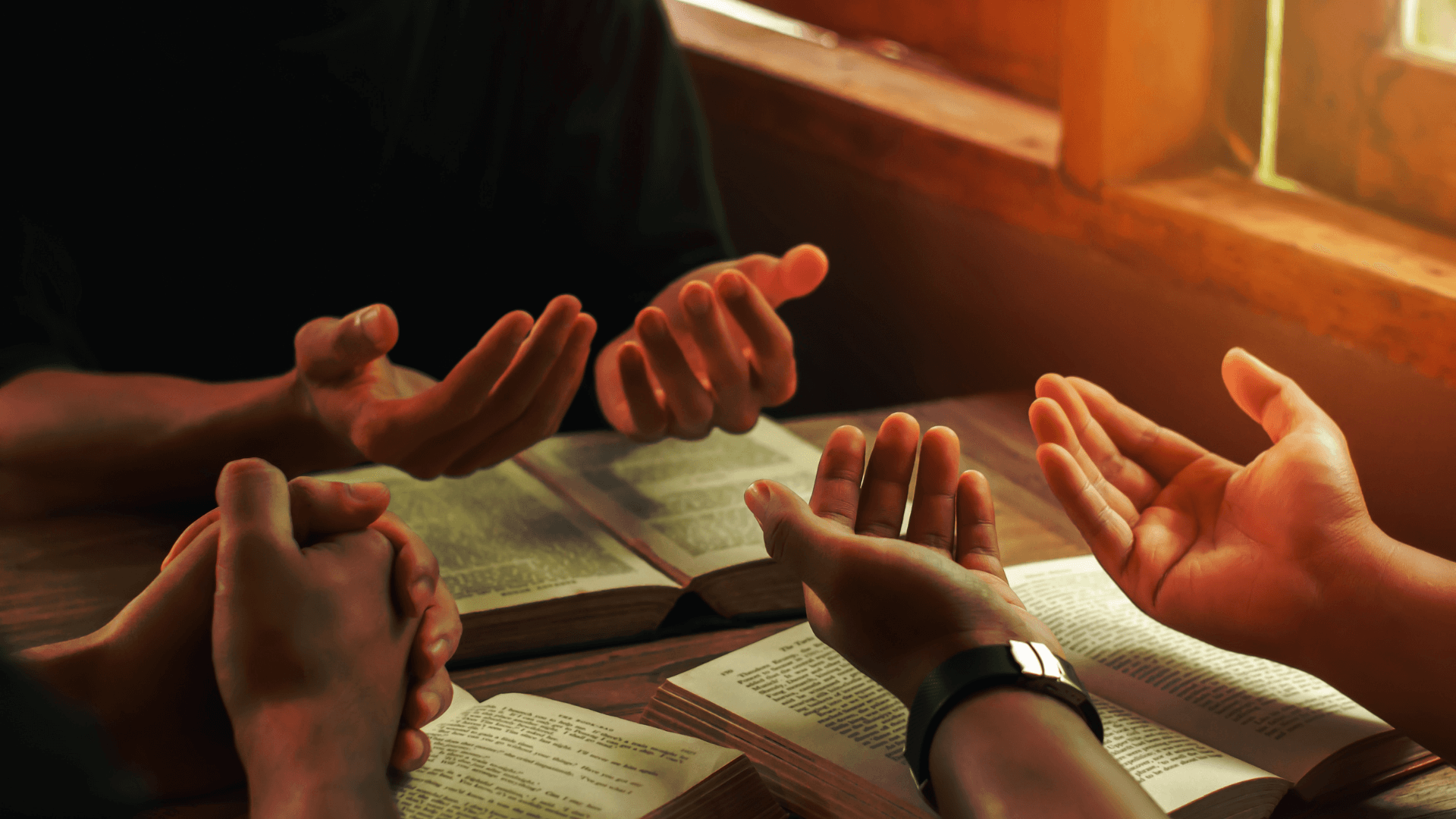I’m all about finding hope in the midst of struggles.
Life is full of struggles, challenges, and difficulties that can sometimes make us feel hopeless and helpless.
Whether it’s dealing with sickness, financial problems, broken relationships, or any other kind of setback, it’s easy to lose faith and feel like there’s no way out. However, as Christians, we have a unique perspective on struggles that allows us to find hope even in the darkest of times.
Maybe I’m obsessive about this “hope” thing. Just this morning I was reading a Facebook post from a friend of mine who is in a horrific downward spiral. She’s “had enough.” Most of her issues grew out of a realization that some earnest, heartfelt beliefs she had were shown to be categorically untrue. It rocked her world to realize she was wrong.
Well, if I were to put my hope in some sort of man-made construct like politics, I’d despair too.
Scripture gives reason for hope in the midst of struggles.
The Bible is full of stories of people who faced incredible struggles and yet found hope and redemption through their faith in God. Take the story of Joseph, for example. Joseph was sold into slavery by his own brothers, falsely accused of a crime he didn’t commit, and spent years in prison. But through it all, he remained faithful to God and eventually became second in command of all of Egypt, saving his family from famine and becoming a hero to his people.
Similarly, the apostle Paul faced numerous struggles in his life, including imprisonment, persecution, and physical ailments. But he never lost faith and continued to preach the gospel even in the face of adversity. In fact, it was during his imprisonment that he wrote some of his most inspiring letters to the early Christian churches, encouraging them to persevere in the faith.
I know what you’re thinking, because I’m psychic like that: “I ain’t Joseph, and I ain’t Paul.”
True that. You are uniquely you. As a believer, however, you have the same resources that they had, and can find hope in the midst of struggles.
How does that work?

Here are four principles.
1 – Trusting in God’s Plan
One of the most powerful ways we can find hope in the midst of struggles is by trusting in God’s plan for our lives. The Bible teaches us that God is in control of everything, and that includes the challenges we face. In Romans 8:28, we read: “And we know that in all things God works for the good of those who love him, who have been called according to his purpose.”
This verse – which can’t be quoted enough – reminds us that God can use even the most difficult situations for our ultimate good.
Of course, trusting in God’s plan isn’t always easy, especially when we’re in the middle of a crisis. But we can take comfort in the fact that God is always with us, even in our darkest moments. As Psalm 34:18 says, “The Lord is close to the brokenhearted and saves those who are crushed in spirit.” When we turn to God in our struggles, we can find hope in the knowledge that he is working everything out for our good.
As a Christian, trusting in God’s plan means having faith that God is in control of our lives and that he has a purpose for everything that happens. It means surrendering our own desires and plans to God and trusting that his plan for us is good, even if it may be different from what we had envisioned for ourselves. That’s a serious wakeup call.
Trusting in God’s plan requires a deep belief in God’s character and his promises.
We need to trust that God is all-knowing, all-powerful, and all-loving, and that he desires what is best for us. We also need to trust that God’s plan for our lives is ultimately for our good and for his glory, even if it may involve hardship or suffering along the way. That’s tough, but there y’are.
Trusting in God’s plan can be challenging, especially when we face difficult circumstances or when God’s plan seems to conflict with our own desires. However, as Christians, we are called to have faith and to trust in God’s sovereignty. In Proverbs 3:5-6 – another classic – we are encouraged to “Trust in the Lord with all your heart and lean not on your own understanding; in all your ways submit to him, and he will make your paths straight.”
Trusting in God’s plan means having faith in his character and promises, surrendering our own plans to him, seeking his guidance and direction, and ultimately trusting that his plan for our lives is good and for his glory.
2 – Finding Community
As a Christian, finding community means being a part of a group of people who share our faith and who can support us in our spiritual journey. It means being surrounded by people who encourage us, challenge us, and help us grow in our relationship with God.
For an introvert like me, this has been a challenge. I like to be around people, but primarily on my own terms.
Still, finding community is an essential part of the Christian life. In the Bible, we see many examples of people who lived out their faith in community. The early church, for example, was characterized by a deep sense of fellowship and mutual support. Acts 2:42-47 describes how the believers “devoted themselves to the apostles’ teaching and to fellowship, to the breaking of bread and to prayer…All the believers were together and had everything in common…they broke bread in their homes and ate together with glad and sincere hearts, praising God.”
Finding community might involve attending a church or small group, participating in a Bible study or prayer group, or getting involved in a ministry or service project. The important thing is to be intentional about seeking out relationships with other believers who can support us in our faith. Our lives shouldn’t operate in a vacuum.
We can find encouragement and accountability as we share our struggles and triumphs with others.
There can learn from the wisdom and experience of those who have walked the path of faith before us. We can also be a source of encouragement and support for others who are going through their own struggles and challenges. That’s a big deal.
Ultimately, finding community as a Christian is about living out the call to love and serve one another.
In John 13:34-35, Jesus says, “A new command I give you: Love one another. As I have loved you, so you must love one another. By this everyone will know that you are my disciples, if you love one another.” By finding and participating in Christian community, we can live out this command and grow in our relationship with God and with others.
3 – Cultivating Gratitude
Are you thankful? When we’re in the middle of a crisis, it can be easy to focus on all the things that are going wrong. However, as Christians, we’re called to give thanks in all circumstances. In 1 Thessalonians 5:18, we’re told to “give thanks in all circumstances; for this is God’s will for you in Christ Jesus.”
This doesn’t mean we should ignore our pain or pretend that everything is okay when it’s not. Rather, it means that we can find hope by looking for the good in every situation.
Maybe we can be grateful for the people who are supporting us, or for the small moments of joy we experience in the midst of our struggles. By intentionally cultivating gratitude, we can shift our focus from our difficulties to the blessings in our lives.
It means acknowledging that everything we have is a gift from God, and choosing to view our lives through a lens of gratitude rather than one of entitlement or complaint.
We can make a daily habit of thanking God for the blessings in our lives, both big and small. We can also reflect on how God has worked in our lives in the past, and give thanks for his faithfulness and provision.
This doesn’t mean ignoring our struggles or pretending that everything is okay when it’s not.
Rather, it means intentionally seeking out and giving thanks for the good things in our lives, no matter how small they may seem.
Cultivating gratitude can help us to shift our focus from our problems to the blessings in our lives, leading to greater joy and contentment. It can also help us to stay connected to God and to remember his faithfulness, even when we are facing difficult circumstances.
Cultivating gratitude as a Christian involves recognizing that everything we have is a gift from God, intentionally focusing on the positive aspects of our lives, and giving thanks to God for his provision and faithfulness. By practicing gratitude, we can experience greater joy and contentment in our lives, and deepen our relationship with God.
4 – Holding onto God’s Promises
To hold onto God’s promises means to trust in and rely on the truths and assurances found in the Bible that are attributed to God. These promises remind us of God’s love, faithfulness, and power, and can provide hope and encouragement in the midst of difficult circumstances.
Holding onto God’s promises involves several steps.
First, we need to identify the promises that speak to our specific situation. For example, if we’re facing financial difficulties, we might look to the promise in Philippians 4:19: “And my God will meet all your needs according to the riches of his glory in Christ Jesus.” If we’re struggling with fear or anxiety, we might turn to Isaiah 41:10: “So do not fear, for I am with you; do not be dismayed, for I am your God. I will strengthen you and help you; I will uphold you with my righteous right hand.”
Once we’ve identified the promises that apply to our situation, we need to meditate on them and internalize them. This means taking the time to read and study the relevant verses, and reflecting on what they mean for us personally. There are no shortcuts. We can also pray and ask God to help us believe and trust in his promises, even when our circumstances seem overwhelming.
Finally, holding onto God’s promises requires faith and patience.
We may not see immediate results or experience an instant resolution to our struggles, but we can trust that God is working behind the scenes and that his promises will come to pass. As Hebrews 11:1 tells us, “Now faith is confidence in what we hope for and assurance about what we do not see.”
Holding onto God’s promises involves a combination of faith, study, prayer, and patience. By relying on the truths and assurances found in the Bible, we can find hope and encouragement even in the midst of our struggles.
I hope this helped. Talk later!











